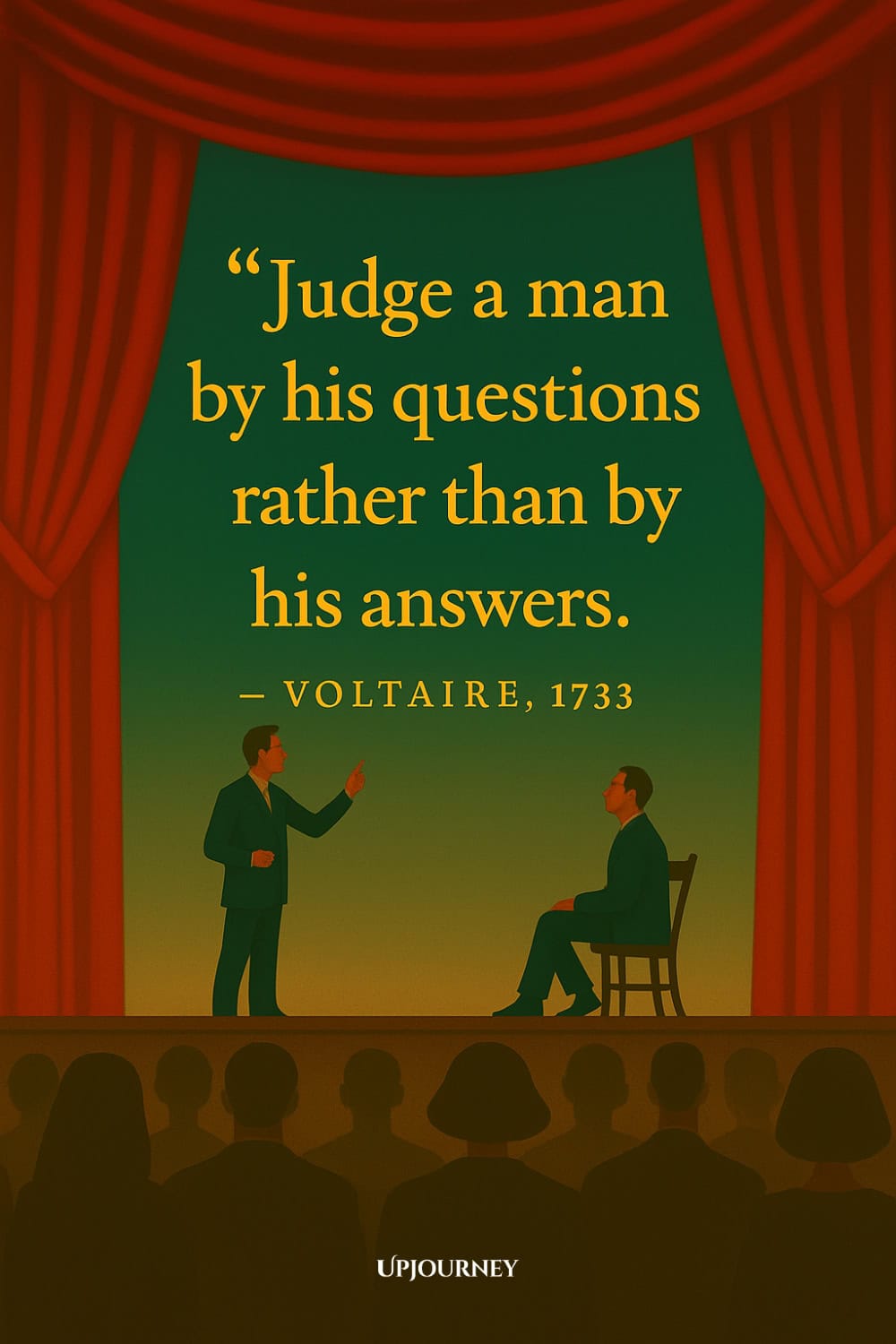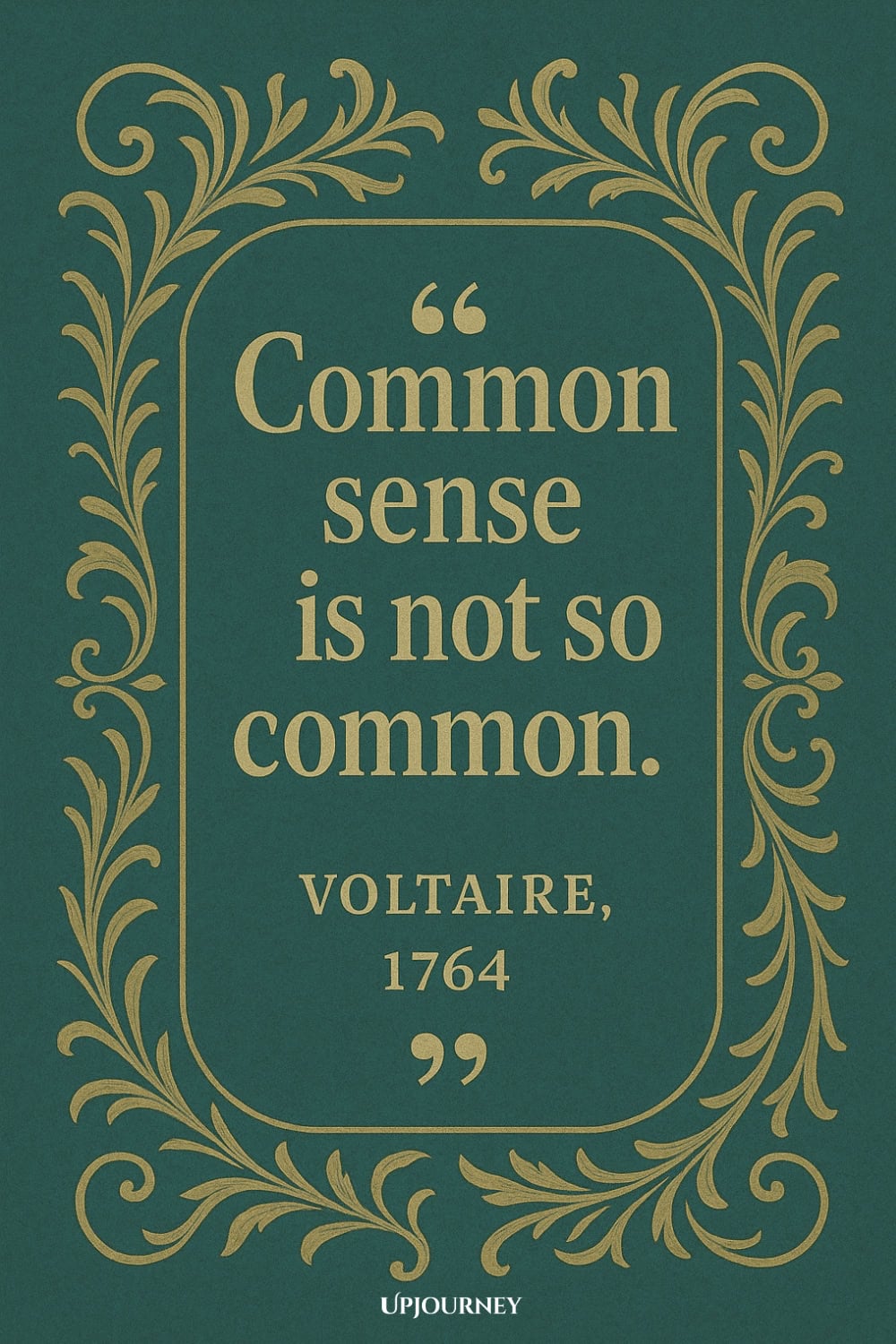Step into the dazzling world of Voltaire—the sharp-tongued French satirist, writer, and philosopher whose wit and fearless opinions shook up the Enlightenment.
Voltaire (born François-Marie Arouet) didn’t just challenge authority; he thrived on it, famously taking on the mighty Roman Catholic Church, championing freedom of speech and religion, and relentlessly mocking oppression in all its forms.
His controversial works sent him on globe-trotting adventures, from cozy English salons to the royal courts of Prussia, dodging censors and critics alike.
Below, you’ll find some of Voltaire’s most memorable quotes and musings on love, religion, God, democracy, and much more—each one a window into the mind of a true revolutionary.
Voltaire at a Glance:
Famous For: Advocacy for freedom of speech, religious tolerance, and reason
Full Name: François-Marie Arouet (Voltaire)
Lifespan: 1694–1778
Notable Works: Candide, Letters on England, Treatise on Tolerance
Fun fact: Voltaire’s legendary literary career was bankrolled by his secret scheme to win the French lottery—so if you’ve ever dreamed of hitting the jackpot and living your passion, you’re in good company!
Table of Contents
Famous Voltaire Quotes
Voltaire’s wit and wisdom have echoed for centuries. These are his best-known, most often cited words:
I do not agree with what you say, but I will defend to the death your right to say it.
— Often attributed, summarizing Voltaire’s beliefs; phrase by biographer Evelyn Beatrice Hall, paraphrasing Voltaire’s stance in his letters (1906).
Meaning: Though not his exact words, this line captures Voltaire’s fierce defense of free speech.
Judge a man by his questions rather than by his answers.
— Attributed to Voltaire in “Letters on England” (1733)
Why it resonates: Questions drive knowledge—Voltaire valued curiosity over dogma.

Common sense is not so common.
— Attributed to Voltaire in “Dictionnaire Philosophique” (1764)
Interpretation: He lampoons the lack of practical wisdom, a theme that feels just as relevant today.

Voltaire on Freedom & Tolerance
Freedom of thought and tolerance were Voltaire’s signature causes.
Think for yourselves and let others enjoy the privilege to do so too.
— From Voltaire’s “Essay on Tolerance” (1763)
Modern lesson: Respecting diverse perspectives is the foundation of open society.
Liberty of thought is the life of the soul.
— Attributed to Voltaire in correspondence (1744)
Takeaway: Intellectual freedom is central to human flourishing.
Tolerance has never brought civil war; intolerance has covered the earth with carnage.
— From “Philosophical Dictionary” (1764)
Today’s meaning: History proves that intolerance is far more dangerous than difference.
Voltaire on Religion & Reason
Voltaire’s critiques of fanaticism and superstition made him both famous and controversial.
Those who can make you believe absurdities can make you commit atrocities.
— From “Questions sur les Miracles” (1765)
Insight: Blind faith can lead to terrible consequences.
If God did not exist, it would be necessary to invent him.
— From “Epistle to the author of the book, The Three Impostors” (1770)
Relevance: Voltaire often used irony to comment on society’s need for meaning.
Every man is guilty of all the good he did not do.
— Attributed to Voltaire in “Zadig” (1747)
Reflection: Responsibility isn’t just about our actions, but our inaction.

Voltaire on Satire & Society
Voltaire wielded satire as a weapon for truth.
The secret of being a bore is to tell everything.
— From “Letters on England” (1733)
Modern meaning: Know when to stop—brevity matters.
It is dangerous to be right in matters on which the established authorities are wrong.
— From “The Age of Louis XIV” (1751)
Why it endures: Courage in the face of power is as relevant as ever.
Prejudices are what fools use for reason.
— Attributed to Voltaire in “Philosophical Dictionary” (1764)
Lesson: True reason requires us to challenge our biases.
Voltaire on Life & Happiness
For all his sharpness, Voltaire also offered hope and wisdom on how to live well.
Appreciation is a wonderful thing. It makes what is excellent in others belong to us as well.
— From “Philosophical Dictionary” (1764)
Today’s lesson: Gratitude multiplies happiness.
Let us cultivate our garden.
— Last line of “Candide” (1759)
Interpretation: Change the world by first tending to your own corner of it.
Life is a shipwreck, but we must not forget to sing in the lifeboats.
— Attributed to Voltaire
Modern relevance: Even in hardship, find joy.

Why Voltaire’s Words Endure
Voltaire’s sharp wit and passionate advocacy for freedom, reason, and humanity still echo today. His quotes aren’t just clever—they challenge us to think deeper, live bolder, and stand up for what matters. Let his words inspire you to question, reflect, and help create a better world.